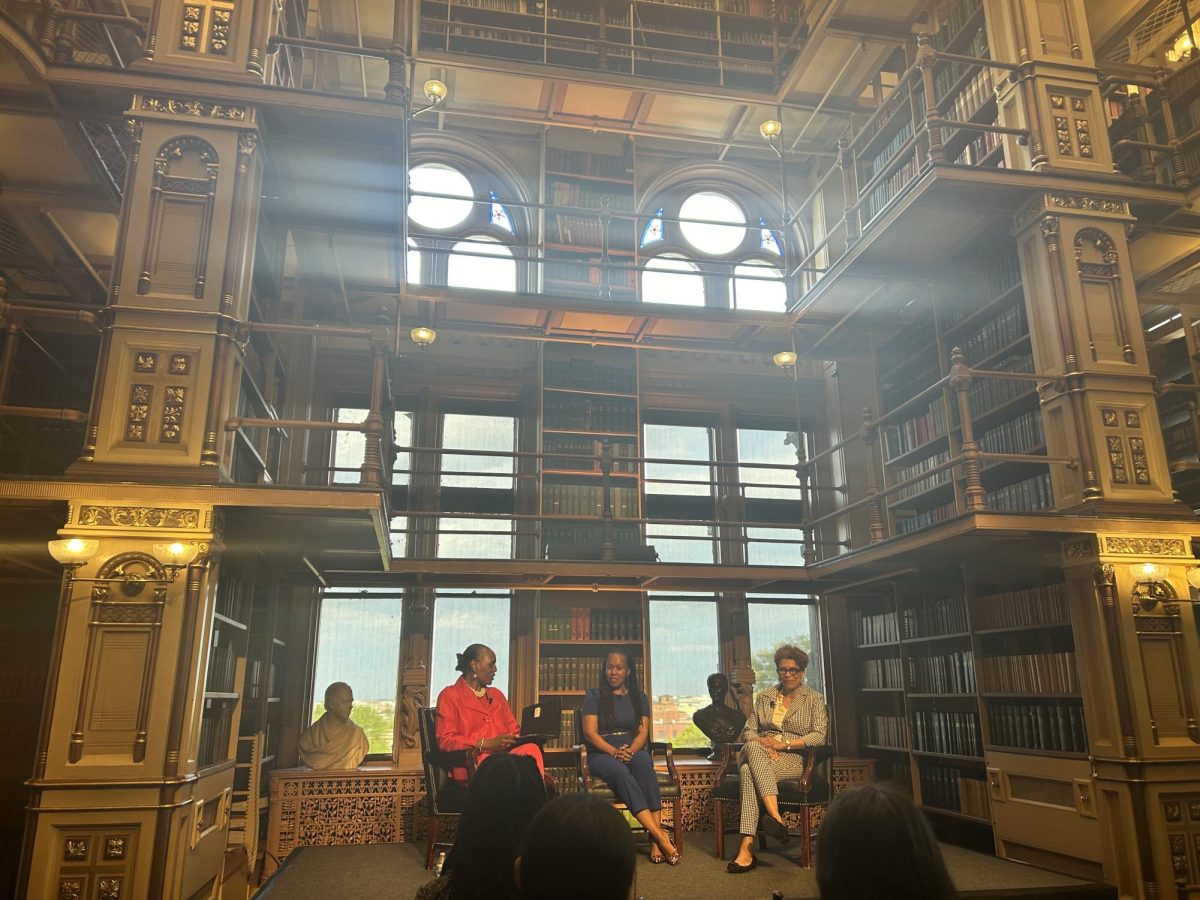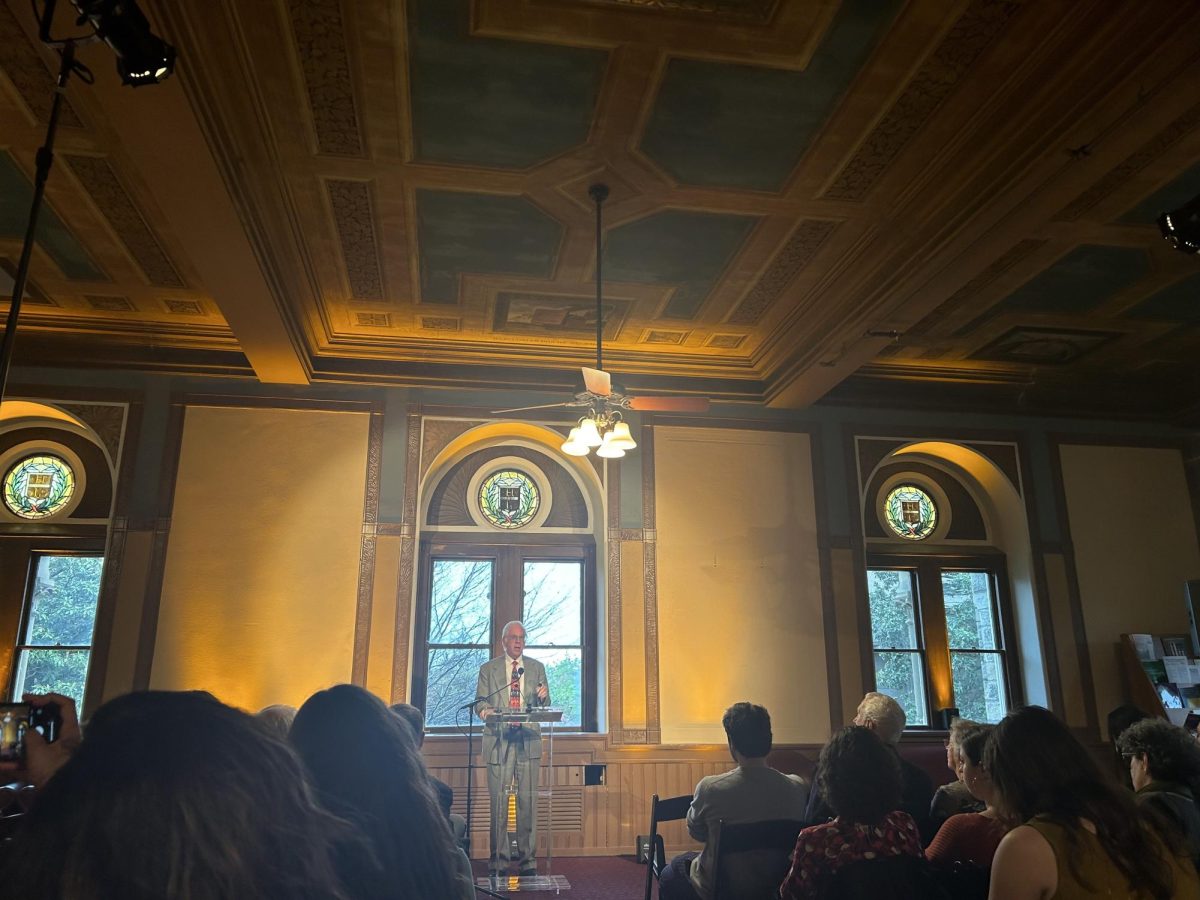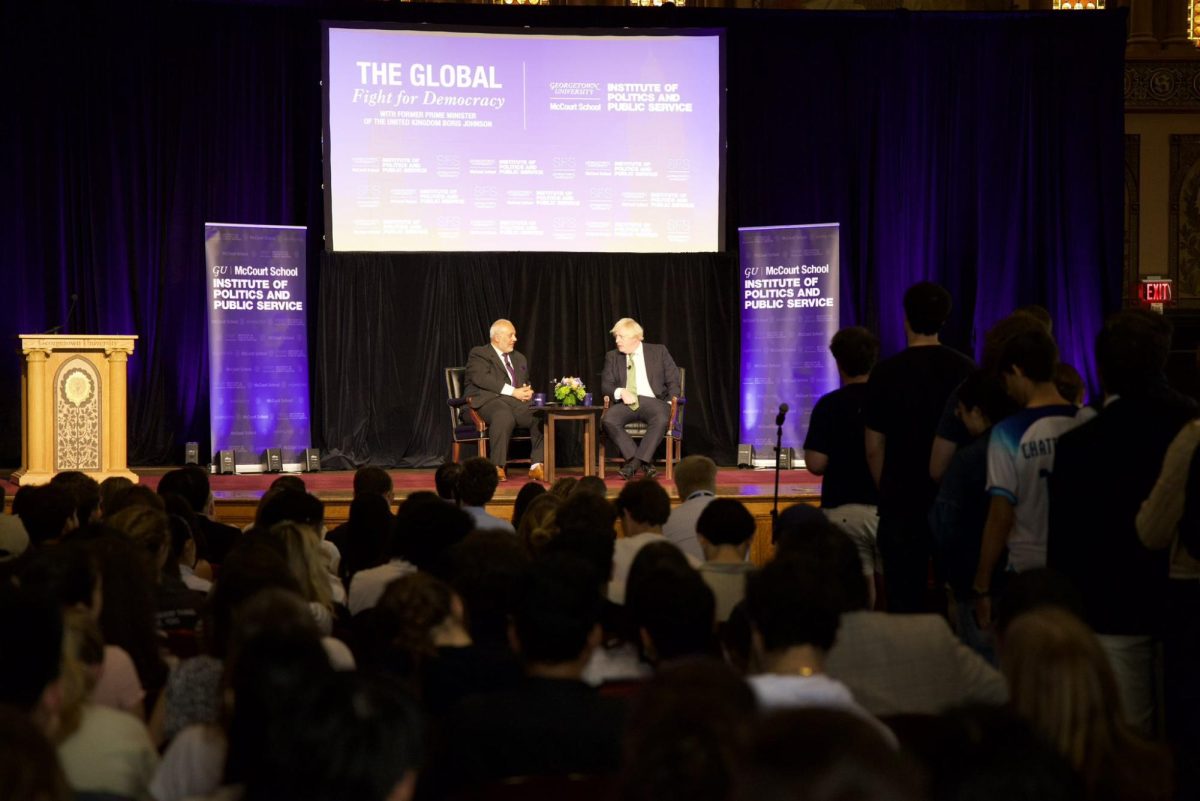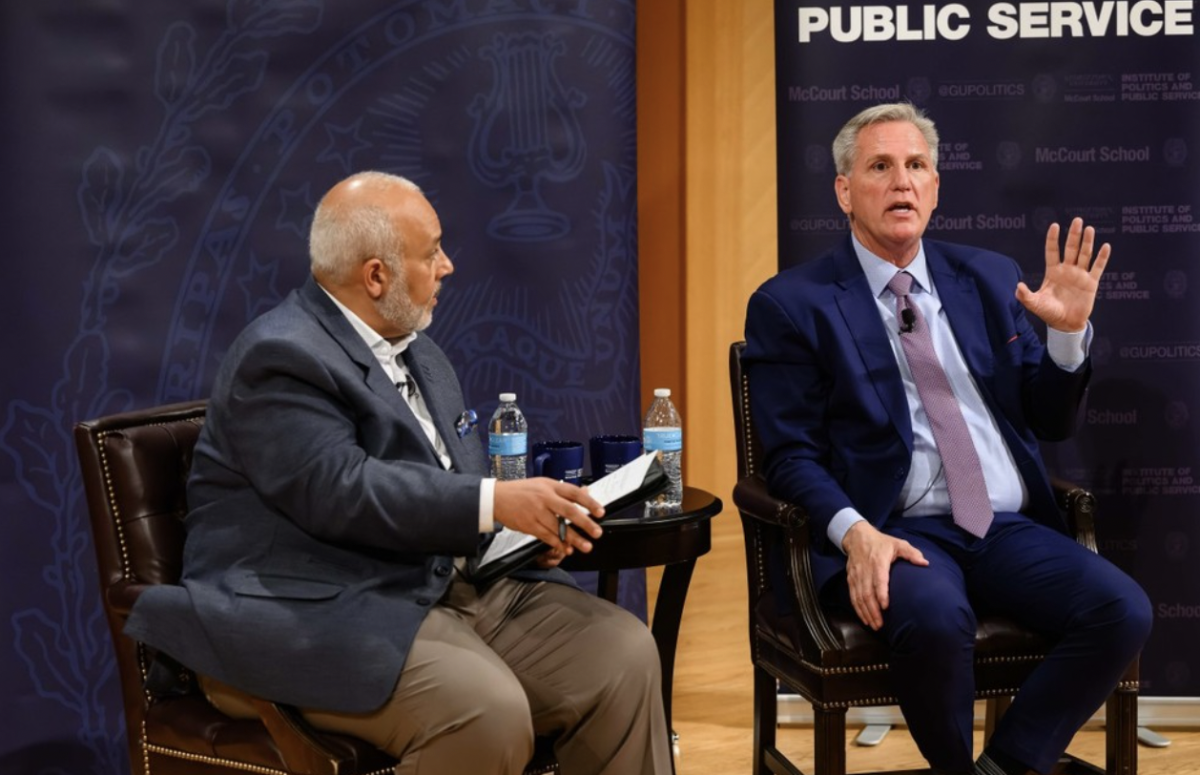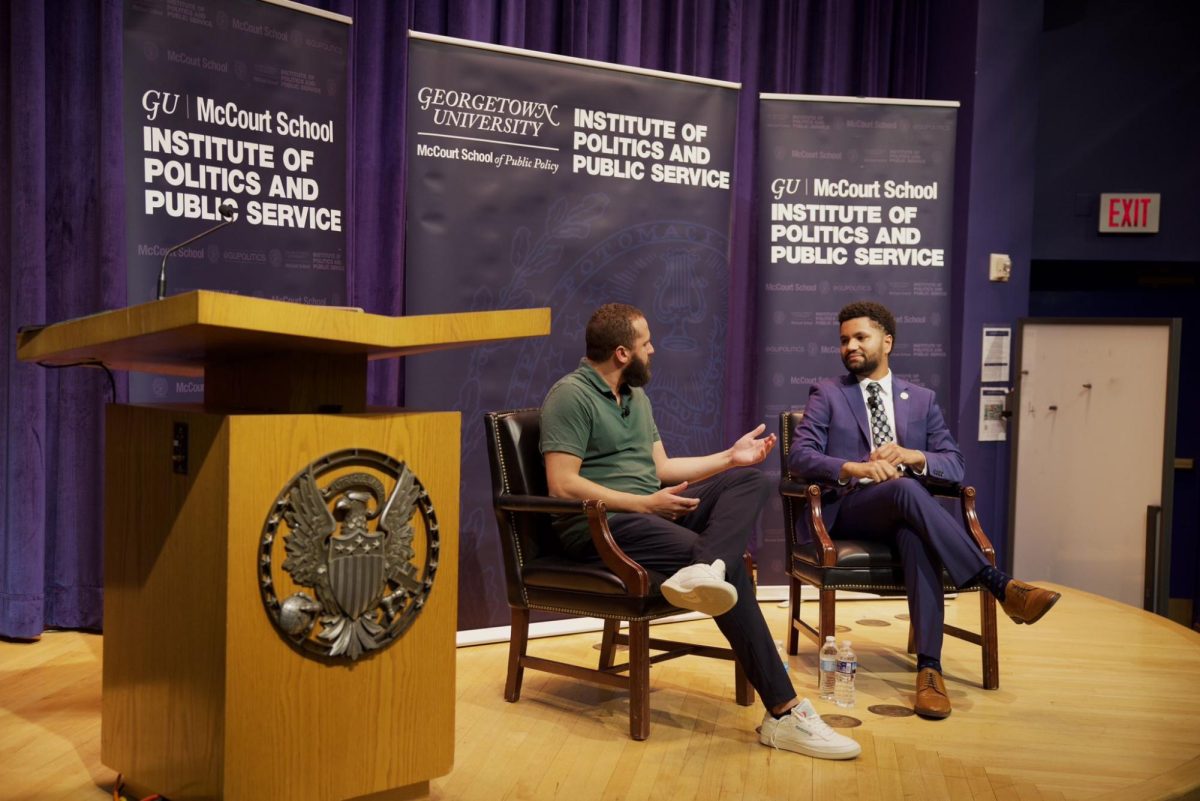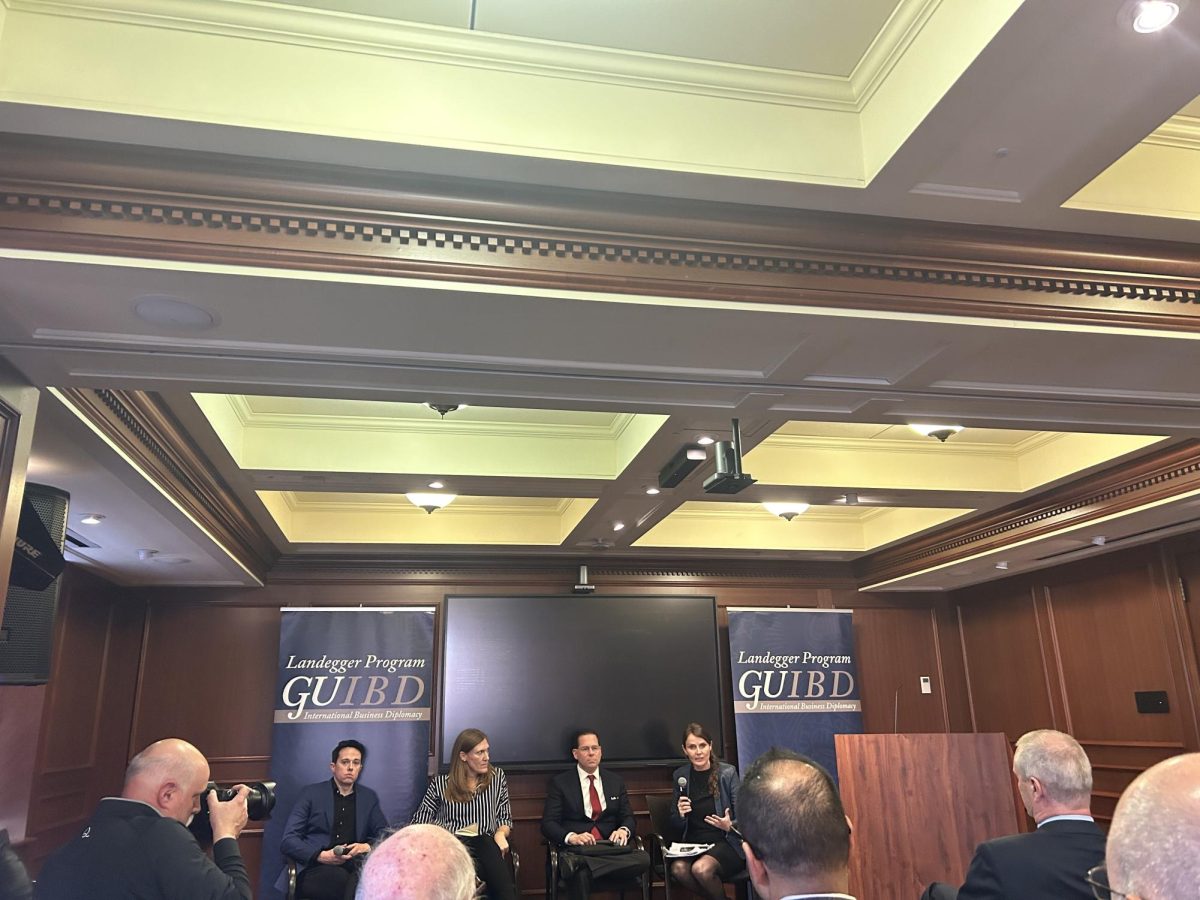Two experts discussed political and social conflict in Yemen and historical instability in the country in a Feb. 22 event.
The panel, hosted by the Center for Contemporary Arab Studies (CCAS) and the Middle Eastern Studies Association (MESA) Global Academy, focused on events in Yemen since the 2011 Arab Spring, a series of anti-government protests and uprisings in the Middle East, including the country’s ongoing civil war and the resulting humanitarian crisis. The event featured Mansour Al-Maswari, a journalist and postdoctoral fellow at Columbia Global Centers in Amman, Jordan, and Nadia Al-Sakkaf, a former Yemeni minister of information, Yemeni researcher, and non-profit founder.
Al-Sakkaf said the dire humanitarian crisis has opened the door for new leader groups, such as the Houthi militant group, to seize power, despite their lack of popularity and approval among the Yemeni population.
“Everything boils down to food, to people not having enough on the table. And so whenever a new leader comes and says ‘I will take care of you, follow me, I will do things the way that supports your livelihood,’ people will follow because we have a problem in leadership,” Al-Sakkaf said at the event. “And the problem today is that — the Houthis for example, they do not represent the leadership that Yemenis want, because there is so much oppression and there is so much nepotism.”
Al-Maswari acknowledged the complexity of the civil war and prior conflicts in Yemen and said a cycle of conflict and rising unhappiness with Ali Abdullah Saleh’s authoritarian regime led to the 2011 Arab Spring uprising.
“This cycle of conflict in Yemen is a signal of the political instability of a failed state,” Al-Maswari said at the event. “The 2011 Arab Spring uprising became a must because of the growing principle during Saleh’s regime resembled authoritarianism, divine rule and family rule.”
Noureddine Jebnoun, a CCAS professor and the moderator of the event, said that the ongoing war in Yemen is largely fueled by the United States and other international players in the Middle East, noting that portrayals of the war as purely civil are inaccurate.
“It’s inappropriate, or irrelevant, to portray the war on Yemen since March 2015 as a civil war as it’s often framed by most of the Western mainstream media, while many scholars of Yemen refer to it as a US-sponsored war on Yemen, since every bomb dropped on Yemen from the Buster bombing bombs to the Cluster bombers are US-made,” Jebnoun said at the event. “I would argue none of the factions have been able to stand against the Saleh government without the support of regional powers.”
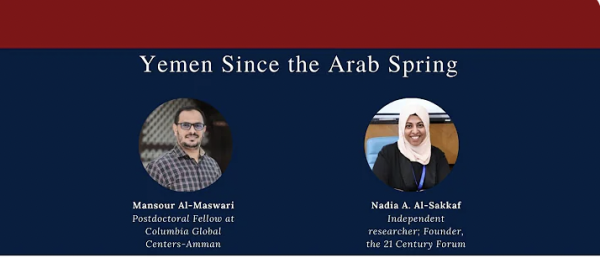
Since the fall of the Saleh government in 2012, various factions have emerged to vie for power in Yemen, many of them backed by neighboring countries. The current, internationally recognized government is backed by a Saudi-led coalition, while the Houthi insurgents are backed by Iran. Saudi Arabia and the United Arab Emirates have been heavily involved in Yemen’s civil war as well, waging air bombing campaigns.
Al-Sakkaf said that even without the involvement of regional players in Yemen’s civil war, Yemenis still face many disagreements amongst themselves and obstacles to surmount in achieving peace in the country.
“There are so many grievances within the Yemeni texture, within the Yemeni society, that we need at least three decades to work out our problems that we created a lot on our own,” Al-Sakkaf said. “I feel we as Yemenis do not really love ourselves, we don’t love our country, there is a lack of patriotism, a lack of ownership, and I don’t know when a time will come when we put the weapons down and say, ‘We will not allow these international players to control us. We will refuse to be puppets or a proxy.’”
Al-Maswari described a bleak situation regarding the humanitarian crisis unfolding in Yemen, saying many Yemenis are living without basic necessities while the Houthi militants keep all available wealth for themselves.
“There are two contracting realities: absolute poverty among the ordinary people of Yemen, and, at the same time, very boundless wealth that the Houthis have accumulated in these areas,” Al-Maswari said. “This comes at the cost of our suffering. If you see the daily life in Yemen, it is unbearable. That’s something — you cannot beat it. You cannot imagine a country without public electricity for the past eight years. You cannot imagine a country without pure water to drink for the past eight years.”
Al-Sakkaf said she hopes one day Yemen will see a peaceful future, and that Yemenis scattered by the diaspora will return to the country to help build peace.
“A time will come maybe in the next 20 years, maybe tomorrow, that we will have Yemenis coming back together,” Al-Sakkaf said. “We are longing to go back to Yemen. And I think we will because we are building ourselves abroad while waiting for the right opportunity.”








